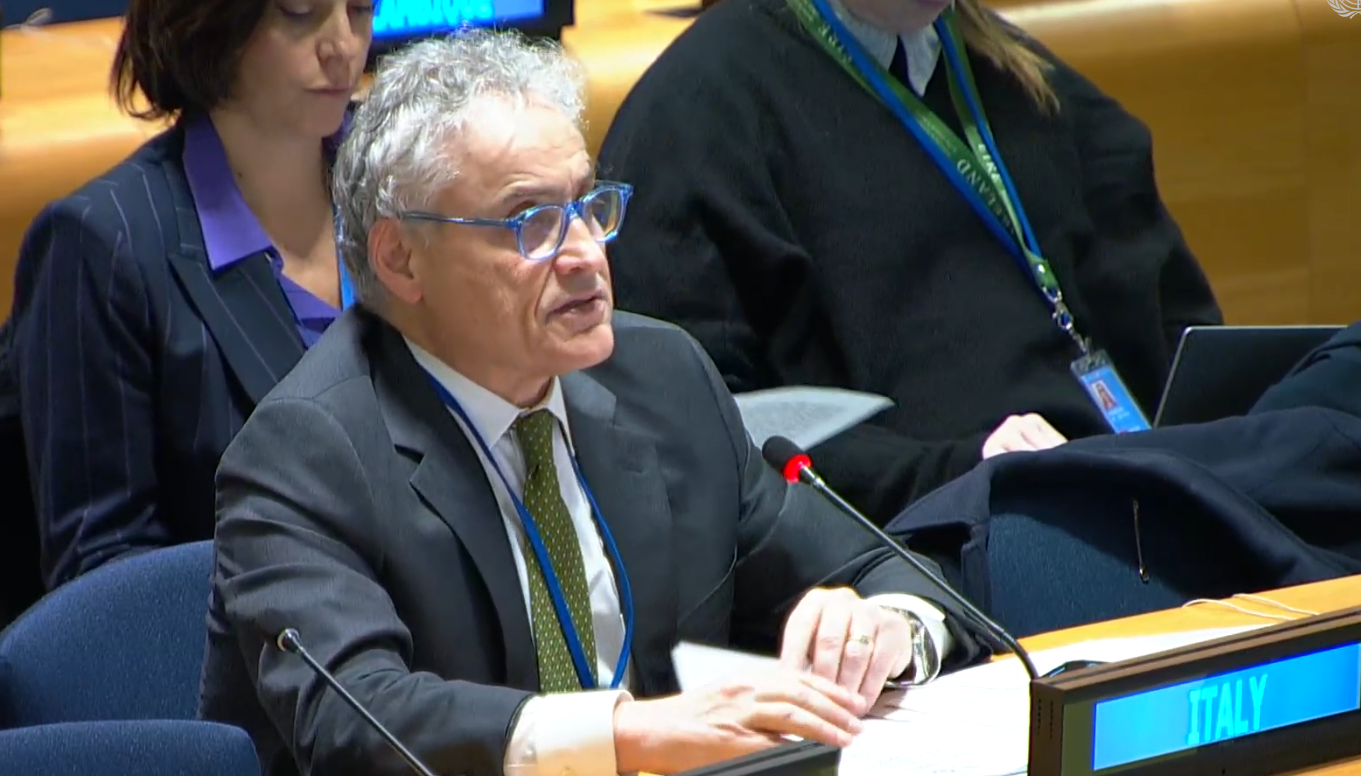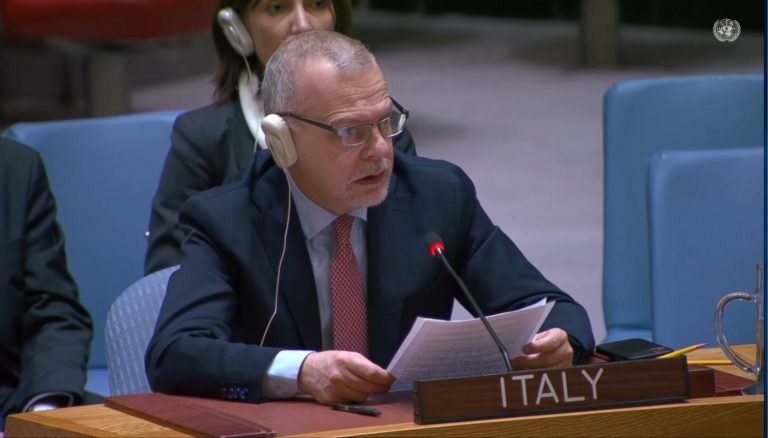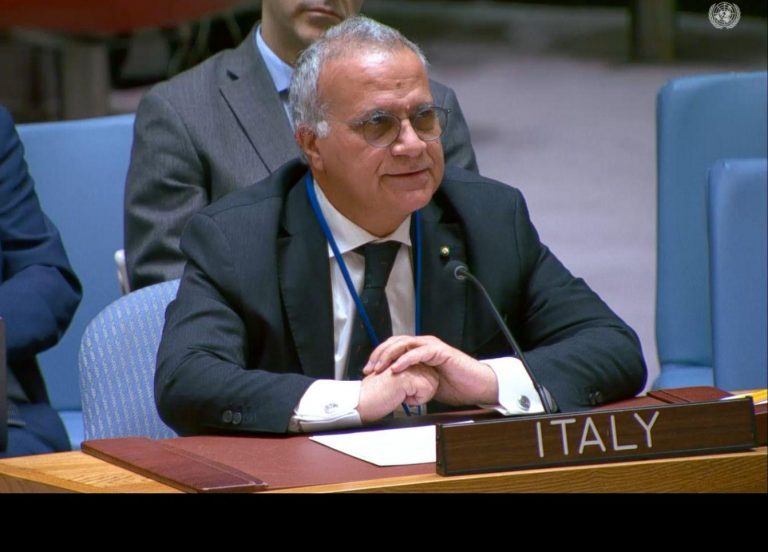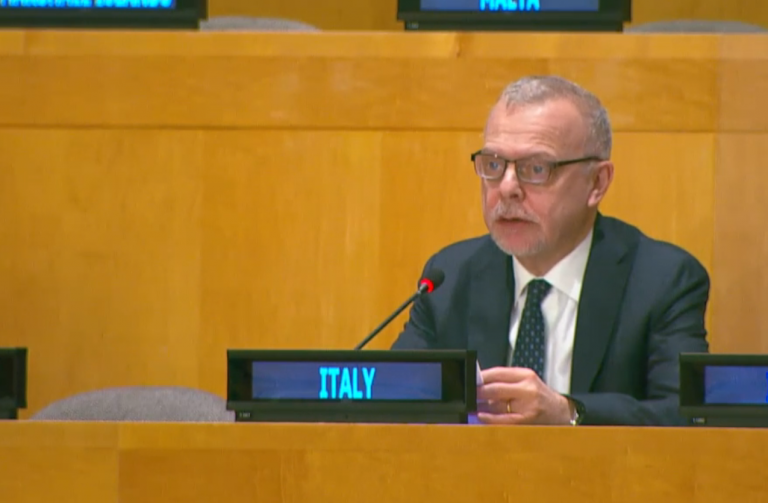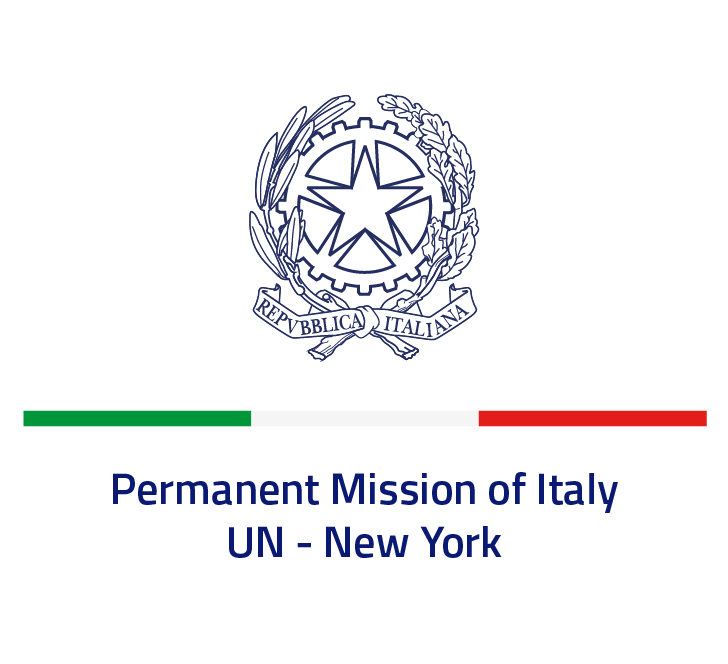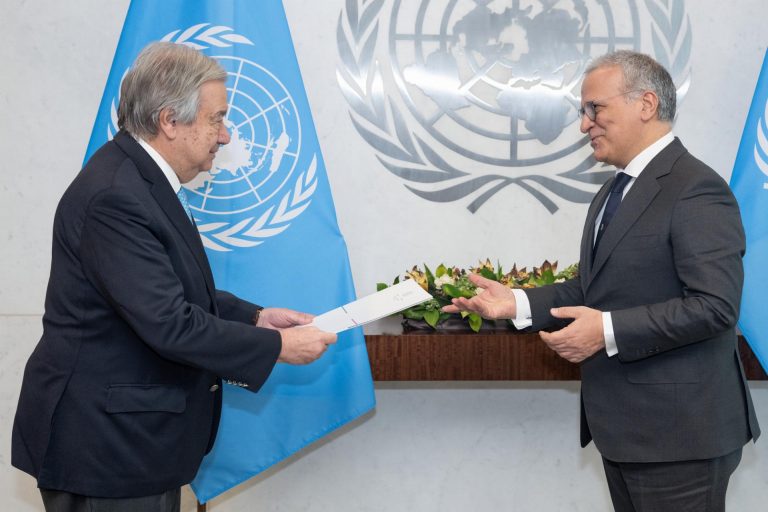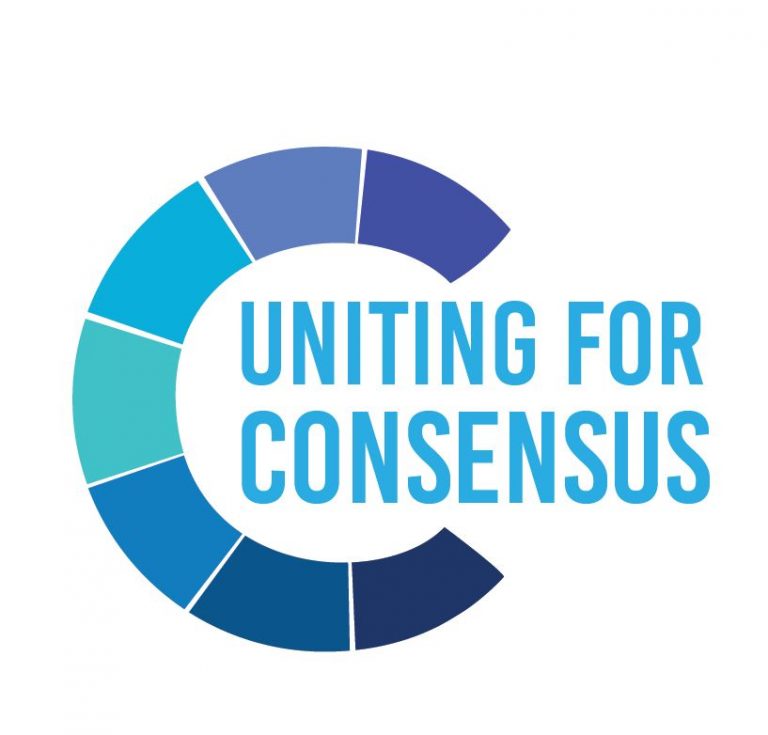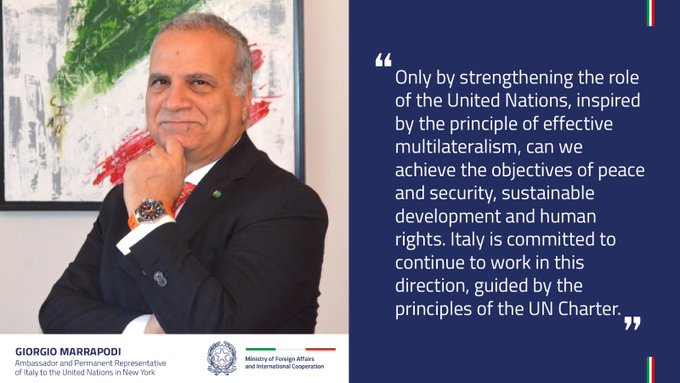Distinguished Co-Chairs,
I will make this intervention on behalf of Uniting for Consensus (UfC), a diverse, cross-regional, pro-reform, Group that comprises, Argentina, Canada, Colombia, Costa Rica, Malta, Mexico, Pakistan, Republic of Korea, San Marino, Spain, Türkiye and my own country, Italy.
I wish to thank you for convening this third meeting of the Intergovernmental Negotiations on Security Council reform for this 79th Session of the General Assembly, focusing on the working methods of a reformed Security Council.
The UfC proposal stems from the understanding that any reform of the Council, and especially its enlargement, should take into thorough consideration the Council’s working methods and their impact on its ability to generate concrete outcomes. A more representative and accountable Council must also be a more efficient and transparent one. If the structure of the current Council needs to be reformed, its working methods must be equally reviewed. We must go beyond focusing solely on categories of membership and seat allocations and follow a comprehensive and balanced approach to the reform of this body, that takes into account the strong interlinkages between the five clusters of decision 62/557. Flexible, inclusive and transparent decision-making processes are key aspects of any reformed and enlarged Security Council.
So how can we enhance the working methods of a reformed Security Council?
First and foremost, the primary goal should be to promote inclusivity, efficiency, and further democratization of the Council, by ensuring all elected members play a central role in its decision-making processes. All members of the Council must have the opportunity to participate equally in shaping the Council’s agenda, drafting outcomes, engaging in consultations, and presiding over its work, in order for decisions to be made jointly and transparently.
Moreover, we advocate for institutionalizing a more equitable distribution of responsibilities, including the sharing of penholderships and chairships of subsidiary bodies between permanent and elected members. We also support the adoption of inclusive working practices that ensure non-Council members have timely and meaningful access to important documents such as draft resolutions, presidential statements, press statements, and other Security Council materials (such as Elements to the Press and Notes by the President), thereby fostering a more representative and participatory decision-making process. In addition, we propose improving the analytical quality of the Security Council’s Annual Report, ensuring that it provides a comprehensive and critical assessment of the Council’s performance.
The UfC advocates for measures that will boost the transparency of both the Council and its subsidiary bodies. This includes improving the availability, frequency, and quality of formal and informal reports, summary records, and briefings for non-Council members. This should also extend to strengthening collaboration with regional and sub-regional organizations.
Many other improvements do not require changes to the UN Charter and can be applied to the current structure of the Council to improve its functioning. For example, increasing the involvement of elected members in drafting resolutions and chairing subsidiary bodies is already feasible within the current framework.
Distinguished Co-Chairs,
The UfC also believes that the Security Council and the General Assembly must work in harmony, complementing and reinforcing each other’s mandates.
It is true that, due to its structure, the Security Council lacks the representativeness and democratic nature of the General Assembly, which includes all Member States. This makes it crucial to improve the Council’s accountability to the broader UN membership. So, how can this be done? The answer lies in periodic elections to ensure Council members remain accountable to the General Assembly. The active involvement of elected members in Security Council decision-making is, at its core, an exercise in democracy. Adding new permanent members would diminish the Council’s adaptability and further entrench exclusivity, making the body less democratic and less representative.
When it comes to consultations between the Council and the wider UN membership, there is broad consensus that improvements are needed. Transparency should be considered as the cornerstone of any genuine democratic reform, ensuring that the views and concerns of Member States directly affected by any issue under the Council’s agenda are heard and taken into account.
As for enhancing cooperation between the Security Council and other UN bodies, the UfC advocates for closer collaboration with the Peacebuilding Commission (PBC). We look forward to seeing the Council regularly seek, deliberate on, and incorporate the PBC’s targeted and strategic advice into its decision-making processes, particularly in the context of peacekeeping transitions and the peacebuilding aspects of peacekeeping mandates, giving appropriate advanced notice and timelines to the PBC to allow for the provision of timely advice to the Council.
Additionally, we believe the Council should engage more consistently with multilateral and regional partners, such as the African Union’s Peace and Security Council. As many African nations remind us during discussions at the IGN meetings, much of the Security Council’s agenda concerns Africa, and African States are among the largest contributors of troops and police personnel to UN peacekeeping missions. A more structured partnership between the UN Security Council and the AU’s Peace and Security Council could enhance more local ownership and foster more effective responses to conflicts. Similarly, the Council should also promote cooperation with other relevant regional and cross-regional organizations.
Distinguished Co-chairs,
The UfC believes that a Security Council enlarged with elected members will enhance its effectiveness and efficiency. For example, in the last decades the vast majority of proposals, suggestions and practices to improve the working methods of the Security Council came from the elected members, commonly referred to as the E10. We have seen over the years many more concrete examples of how elected members can contribute to the works of the Council, perform efficiently as innovators and bridge-builders.
Distinguished Co-Chairs and colleagues,
These are just some of the main ideas of the UfC regarding the cluster of working methods of a reformed Council. We look forward to continuing our constructive engagement in the discussions ahead. We remain convinced that pragmatism should lead us all when we approach an issue as delicate as the Security Council reform. We should all be ready to compromise and aim at a reform for all, in line with our times.
Thank you.







